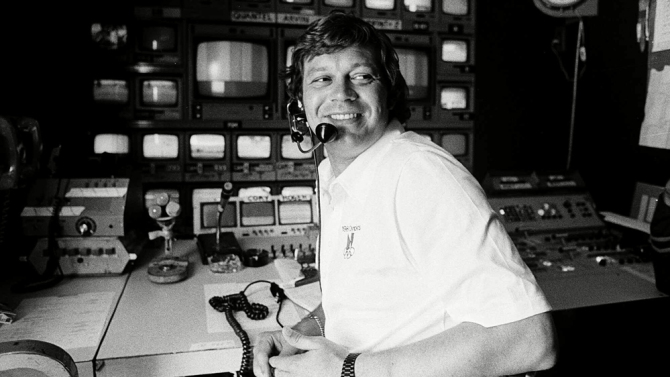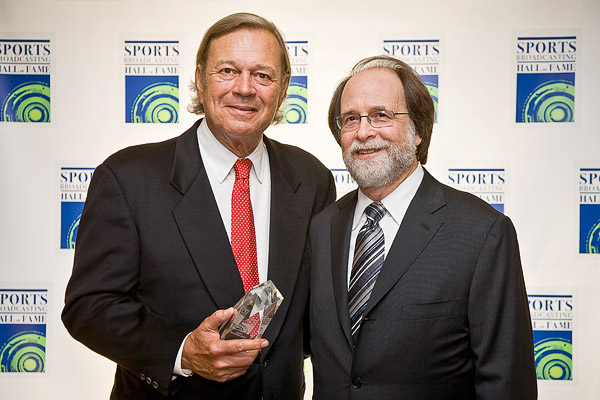Legendary Sports Production Executive Don Ohlmeyer Dead at 72
His impact is still felt today in the way sports and entertainment live programming is created
Story Highlights
Don Ohlmeyer, a singular force whose creative vision and talents reshaped not only sports broadcasting but the entertainment side as well, has died at the age of 72. He began his career at ABC Sports and, as a producer there, transformed shows like Wide World of Sports and helped Monday Night Football set a template for big-time primetime productions.

Legendary sports and TV executive Don Ohlmeyer has died at 72.
“From the first day I went to work at ABC Sports, it was like giving heroin to an addict,” Ohlmeyer said in 2008 during an interview for his induction into the Sports Broadcasting Hall of Fame. “I just absolutely loved it; I couldn’t wait to go to work. I was mesmerized by how shows were put together.”
Spreading his talents across multiple sports, networks, and genres, Ohlmeyer took chances with personnel, production choices, and technology, constantly pushing for new ways to tell the story better. In 2008, he was inducted into the Sports Broadcasting Hall of Fame.
Ohlmeyer’s own broadcasting story begins at the University of Notre Dame, where he spent Saturdays working as a gopher for ABC Sports.
In the early 1960s, ABC, which had no rights to the big-ticket championships, was the underdog of sports broadcasting. Ohlmeyer was charged with turning second-tier events profiled on Wide World Of Sports into first-class productions.
As producer of Monday Night Football, Ohlmeyer began telling those stories to a mainstream audience. Introducing in-game updates, the consummate risk-taker paved the visual path to the modern football telecast.
“Don was a legendary television executive who always sought innovative ways to tell stories and captivate audiences,” ESPN said in a statement. “His groundbreaking work on ABC’s Monday Night Football helped turn that franchise into a primetime television hit. He cared deeply about the TV industry and contributed to ESPN in many meaningful ways throughout the years. Our condolences to his loved ones.”

Don Ohlmeyer (left) with Howard Katz of the NFL at the Sports Broadcasting Hall of Fame induction ceremony in 2008
Ohlmeyer’s vision was always to touch his audience, to make them feel something — from the pain of the massacre at the 1972 Munich Olympics to the ironic hilarity of comedian Dennis Miller on Monday Night Football. Lured out of retirement by Howard Katz, then president of ABC Sports, Ohlmeyer returned to his roots in 2000 to produce MNF once again.
“Don was the one producer who could transform the show into something magic and get people talking about Monday Night Football again,” Katz said at the time of Ohlmeyer’s induction into the Sports Broadcasting Hall of Fame. “Don was unique in his ability to bring not just sports knowledge but true showmanship to a primetime program and make it something out of the ordinary.”
Ohlmeyer began working full-time at ABC in 1967 and worked his way up from production assistant to associate producer and, in 1973, producer. When he was producing the Indianapolis 500, the New York Times reports, his goal was to make the broadcast as enthralling as his experience of Grand Prix, the film by John Frankenheimer. Ohlmeyer was in the ABC control room during the 1972 Summer Olympics, when the network covered the massacre of 11 Israeli team members by Palestinian terrorists.
Among his many accomplishments, it is what he did with Monday Night Football that has most likely had the largest impact on the way big-time sports events are produced. In fact, one could argue that it was not until Ohlmeyer’s vision became a reality for the show that the concept of “big-time sports production” was even defined. MNF became a force in and of itself, taking over the cities where games were played and generating excitement because of the uniqueness of a football game being played on a weeknight. For the local fans, it was a chance to have their hometown shine on the national stage. For the ABC Sports talent and production team, it was a chance to be, increasingly, almost as big as the show itself.
In 1977, Ohlmeyer left ABC Sports to become executive producer at NBC Sports and, in 1982, left there to found Ohlmeyer Communications, where he created another event that changed the sports landscape: The Skins Game. For the next 25 years, it would be a fixture among professional golf events in November and December, brought a different format to the game, and gave golf fans in the colder regions of the nation a chance to at least escape the cold and spend a few days via TV at the Indian Wells golf resort in Indian Wells, CA.
In 1993, he returned to NBC as president of NBC West Coast and brought new life to the entertainment division, playing a key role in establishing hits like ER, Friends, Frasier, and Seinfeld. NBC rose to No. 1 in primetime during the 1995-96 season.
“Don Ohlmeyer was a towering figure in sports and entertainment who had an indelible impact both on NBC and our industry,” NBC Entertainment Chair Robert Greenblatt said in a statement. “His legacy will live on not only because he is directly responsible for some of the biggest hits in television — Friends, ER, and Will & Grace to name a few — but also because he brought NBC to a new level of classy, sophisticated programming of the highest quality, which we all still aspire to achieve today.”
Ohlmeyer stepped down from NBC post in 1999 and rejoined ABC to produce Monday Night Football. In his second stint with the show, he dramatically changed its visual and graphic look, added a healthy dose of his trademark controversy, and put the template in place to return MNF to its glamour days. Ohlmeyer was expected to stay in the job for two years but left after one season, saying he had wearied of the travel.
“I never really left sports,” Ohlmeyer said in 2008. “Even when I went to NBC as president of West Coast, I made part of my contract that I could still direct the Indy 500.”
Sports continued to infuse Ohlmeyer’s life as well as his curriculum in his final years where he was an adjunct professor of communications at Pepperdine University. Having found a way to give back to a business that gave so much to him, Ohlmeyer ended his career teaching a new generation of television professionals to touch their audience as he did so brilliantly for 35 years.
Ohlmeyer, born in New Orleans on Feb. 3, 1945, is survived by his wife, the former Linda Jonsson; sons Drew, Chris, Todd, and Kemper; and nine grandchildren.
